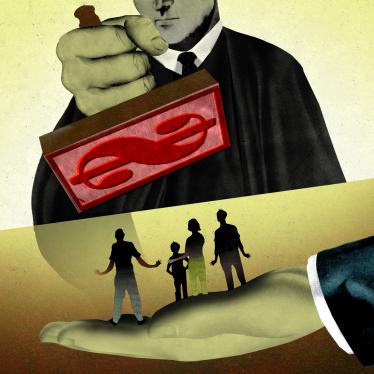So there is often language in used-car sale contracts that says that you agree to bring the car back if the dealer cannot find a lender who will agree buy the loan that the dealer negotiated with you.
This is where the bad ones cheat you -- you drive off the lot and then you sink money into the car, and then they call you and tell you that your financing failed, and you have to bring the car back. Often, the dealer CAN find financing on the terms negotiated, but they won't end up making as much money as they hoped to -- so they decide to try the yo-yo scam on you (or "bushing").
(This is one reason not to put much money into a used car until the deal is "final final" -- one way dealers abuse consumers is that they will not give you any credit for the new accessories you put onto the car, and lots of times they have already sold your trade in. It's illegal, but it happens all the time. It makes you very vulnerable.)
Under Oregon law, if the dealer calls you and says your financing failed, they have to tell you that you have a right to get everything you put down on the car back (cash and trade-in), and when you go to take their car back, they have to actually have the keys to your trade-in and any cash you gave them sitting right on the table so that you can walk away completely and not do another deal with them.
NEVER agree to pay more than you already negotiated for a car or to accept a higher interest rate. The dealer can always carry your loan without selling it to a financing company -- and it's always better to get out of a deal where the financing fails than to make it worse by agreeing to pay more. (If your credit is so poor that no lender will take the original deal, how does it get better if you agree to pay more?)
A dealer who tries to talk you into a different car or for paying more than you already agreed to pay is a cheat.
And don't think for a second you can outsmart a cheat at their own game. Once they are out to cheat you, your best bet is get away from them. If you buy a used car on contingent financing and then you get a call or text saying that you have to bring the car back:
- Get all your paperwork about the original deal and financing out of the car and the glovebox! Do NOT give the original deal and financing paper to the dealer! You may need it later. Make sure the dealer can't destroy the evidence of the deal or make it hard for you to get!
- Have a friend drive a second car when you go to the dealer when you return their car, so that you have a ride home - DON'T let the dealer trap you at their dealership without a way home. If you can't find a friend to take you, bring cab fare.
- DON'T bring your kids and DON'T go just before work so that you are pressured to finish quickly or agree with the dealer to new terms!
- Take a sharp adult friend or family member with you to be a witness. Don't let the dealer separate you or isolate you
- Call a consumer attorney experienced in dealing with autofraud if the dealer fails to comply with any part of the law quoted below.
OAR 137-020-0020 (3)(z):
(z) Anti-Bushing Rule - In any transaction in which the dealer or broker has spot delivered a vehicle to a consumer and the consumer does not qualify for the terms offered, the dealer or broker shall, prior to offering, negotiating or entering into new terms for the purchase or lease of a vehicle:
(A) Inform the consumer that the consumer is entitled to have all items of value received from the consumer as part of the transaction, including any trade-in and down payment, returned to the consumer;
(B) If the consumer is physically present when the dealer or broker informs the consumer that the consumer does not qualify for the terms offered, return all items of value received from the consumer as part of the transaction; and
(C) If the dealer or broker informs a consumer by telephone or other means, without the consumer present, that the consumer did not qualify for the terms offered, clearly disclose the consumer's right to receive the immediate return of all items of value given by the consumer as part of the transaction when the consumer returns the spot delivered vehicle. Simply informing a consumer of the consumer's right to get back his/her down payment and trade-in and having the consumer sign a waiver or rescission form, without the actual ability for the consumer to have his/her down payment back and take possession of his/her trade-in, does not comply with ORS 646.877 . The consumer's down payment and trade-in must be actually available to the consumer should the consumer wish to rescind the transaction and not enter into a new transaction. If a consumer has paid a down payment with a check, the dealer is not required to refund the down payment until the consumer's check has cleared.
OFFICIAL COMMENTARY: This rule clarifies the Oregon "Anti-bushing" statute, ORS 646.877 , so that dealers and brokers clearly understand its requirements. This statute gives both dealers and consumers specific rights when it is necessary to unwind a spot delivery transaction. While the statute clearly states "the seller shall return to the buyer all items of value received from the buyer as part of the transaction," many dealers and brokers do not actually give or even offer the consumer the down payment and trade-in back before the dealer or broker tries to get the consumer to sign a new contract. Many dealers and brokers do not even have the down payment or trade-in readily available when they inform the consumer that the consumer needs to enter into a new contract. Simply offering to return the items of value and having a consumer agree to rescind the prior deal is not in compliance with the statute. The consumer has an absolute right to walk away from the deal if the original offer is not going to be honored. Without having actual ability to take possession of the trade-in and down payment, the seller has the ability to pressure a consumer into entering into a less favorable contract and has an uneven bargaining position. Having a refund check presently available and giving the consumer his/her keys with the trade-in vehicle immediately available is necessary for compliance.
| manuel_avoids_car-buying-trouble.pdf |



 RSS Feed
RSS Feed
